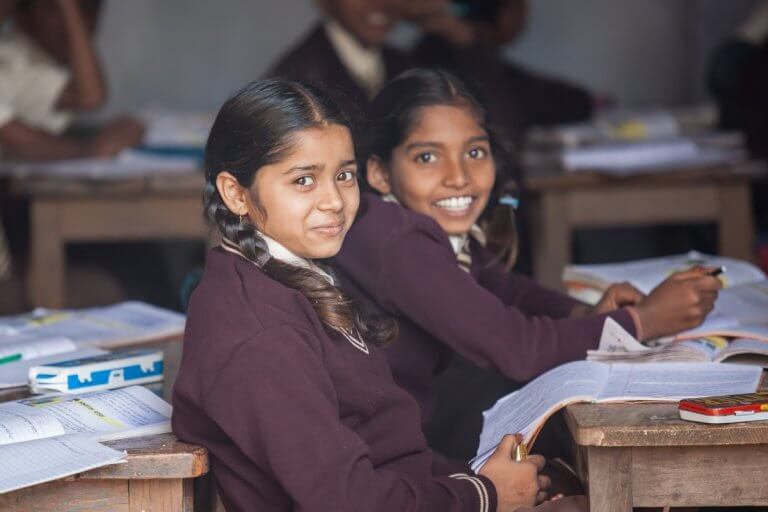
Karnataka, a southwest state in India, has announced it will provide free education for girls from kindergarten to postgraduate level, in a bid to raise women’s place in society.
The initiative is estimated to encourage 370,000 girls to gain a high level of education, according to Your Story.
In a country where gender discrimination remains pervasive and entrenched, promoting education for women is seen as essential as it can empower and socially mobilise them. According to a Unicef report on infant mortality, from the moment of birth, girls in India are socially more vulnerable than elsewhere in the world.
“[Baby] girls have the advantage of being biologically stronger, yet sadly they are extremely vulnerable socially. The discrimination begins even before they are born,” Unicef India representative Yasmin Ali Haque said in a statement to Kuwait Times.
Moving into adulthood, women currently make up only 26 percent of the workforce, according to Hindustan Times.
Despite their central role in the economy, culture and family, barely 13% of women in India own land.
Full Report: https://t.co/x9rds6RkjF pic.twitter.com/GOWbTmD77Z
— GoNewsIndia (@GoNews_India) February 22, 2018
Through free education, women can gain employable skills and improve their place in society.
“The scheme is actually derived from the realisation of social reality. A large number of people in India are living in poverty and they have many children,” Empower People founder Shafiqur Rahman Khan told Study International.
“In this situation, they usually cannot afford education for all of their children, so people often focus on education of boys but not the girls.”
“Educated girls would challenge these stereotypes based on not only gender but also on religious identity or caste and class identity. An equal society can’t be imagined without the participation of girls from different classes,” she added.
More healthy and nourished women & girls will complete their education and lead productive lives. To unleash their latent potential, early health interventions must be prioritized. #NutritionEqualsGrowth Read more: https://t.co/eBUAsi28N4 pic.twitter.com/zv3kXkukQu
— Gates Foundation India (@BMGFIndia) February 22, 2018
However, only parents who have one daughter will be offered completely free education from kindergarten to postgraduate level. Families with two children will only receive half the funding for each child.
Families living in poverty often send their daughters to work to help the family pay for living costs, Dewali Deb, a teacher in India, explains to Study International. The bigger the family, the more expensive is to provide for them.
Widespread poverty in India creates a culture where daughters have a financial responsibility to help provide for the family; however, they are not gaining crucial skills for well-paid employment they would learn at school.
Although offering free education to all girls is a step in the right direction, Deb thinks family and societal attitudes need to change for the initiative to have maximum impact on women empowerment.
“Although the initiative seems progressive on paper, there are several barriers to its success,” said Deb.
“The scheme promotes female education which will help raise the status of women in the country. This should liberate women in their personal life choices, which will allow social, family and community attitudes towards women to change.”
Meet the groups fighting for #girlseducation in India, including @educate_girls and @Pratham_India. Via @TheAtlantic https://t.co/wrJ8HCYhQB
— Skoll Foundation (@SkollFoundation) February 22, 2018
However, deep-rooted discrimination against women in the family and society may limit the potential of education on the road to empowerment.
“Educating girls in the way Karnataka is [doing] could be a bad investment. Parents are not investing in girls emotionally or financially, due to a lack of representation in the job market,” added Deb.
“Girls are [generally] not cared for within the family even though she shares the workload with her parents. Discrimination against women does not only exist in society but within Indian family structures as well.
“Therefore women need to start a movement by themselves for themselves. They need to act fearlessly. By receiving a good education, having a good profession, becoming the owner of property women can maximise their freedom of choice for themselves,” she concluded.
Liked this? Then you’ll love…
India to plug AI talent gap with education initiatives
Graduates from top Indian institutes to teach in rural colleges







